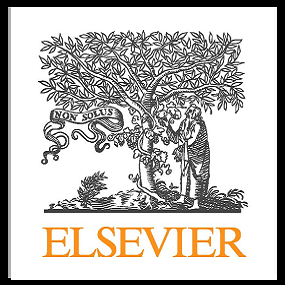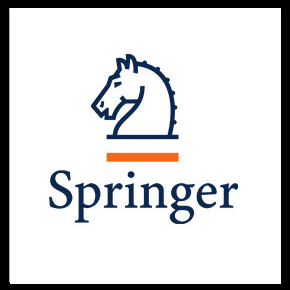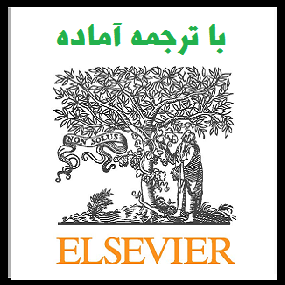مقاله انگلیسی به سوی نظریه سیستم های بازاریابی به عنوان کالای عمومی (2018 سیج)


| عنوان فارسی مقاله | به سوی نظریه سیستم های بازاریابی به عنوان کالای عمومی |
| عنوان انگلیسی مقاله | Towards a Theory of Marketing Systems as the Public Good |
| نمونه ترجمه کامپیوتری | سیستم های نظری بازاریابی و رانندگی جمعی برای تغییر
تئوری سیستم های بازاریابی بر مبنای ایده پایه ای استوار است که بازاریابی یک تکنولوژی فراهم آوردن جامعه است که می تواند انعکاسی باشد، زیرا اغلب می تواند به وسیله توانایی خود برای تاثیر بر ابعاد جامعه مانند ابعاد اقتصادی، سیاسی، اجتماعی، فرهنگی و اجتماعی جامعه (Fisk 1967، 1974؛ Fisk 1997؛ Kadirov و Varey 2011؛ Layton 2007؛ 2009؛ 2015؛ Mittelstaedt، Kilbourne، Mittelstaedt 2006). فیکس بازاریابی را به عنوان یک فرآیند اجتماعی که بازتابی (از قبیل تفسیر) از دیدگاه سهامدارانی که در معرض اثرات ناگهانی در قالب کالاها و کالاهای عمومی قرار می گیرند، را درک کرده است. وی ادامه داد که خواندنش از متفکران بازاریابی کلاسی به عنوان مثال آلدرسون، برییر، کاکس) به او اعتقاد داشت که سیستم های بازاریابی مؤثر نیازهای انسانی را به صورت مؤثر و انعطاف پذیری با حداکثر رساندن اثرات جانبی مثبت مطابقت می دهند. اگرچه Fisk (1997) به طور خاص درباره نحوه ایجاد سیستم های بازاریابی ظهور و تکامل صحبت نمی کند، وی تأکید کرد که نیاز به بازیگران بازار آزاد بدون رعایت موازین، بازیگران بازار آزاد است که بر روی فن آوری هایی تأثیر می گذارند که اطمینان از نتایج نظیر عدالت توزیع، پیشرفت جمعی، کیفیت زندگی و طولانی مدت جامعه شکوفا می شود از آن زمان، نظریه های بازاریابی سیستم به طور عمده بر تقاضا برای کالاهای / خدمات متمرکز متمرکز شده است (لایتون 2007) و سوالات در مورد اینکه آیا بازیگران بازار “فکر می کنند” مانند سازندگان ماکرو، و آیا آنها درک مسائل سیستماتیک، آیا آنها تمایل تغییر نهادی در جامعه را فراتر از بازارهای. تحقیقات Macromarketing نشان می دهد که سیستم های بازاریابی به عنوان یک راه حل برای مسئله “عدم تقارن تقاضا” بوجود می آیند (لایتون 2009؛ میتلستدت، کیلبورن و میتلستدت 2006). ناهمگنی تقاضا به علت پیشینه های رسمی، غیر رسمی و فلسفی (Mittelstaedt، Kilbourne، Mittelstaedt 2006) و همچنین مکانیزم بازار (مکانیسم بازار) (Layton 2015) بوجود می آید. فیسک (1997) تا حدودی مخالف این امر است که تقاضا در یک سطح میکرو در داخل ساختار سیستم بازاریابی شکل داده شده و تعیین می شود. در مقاله حاضر، این منطق به نظر می رسد متفاوت با هم در تلاش برای پاسخ به سوال زیر می آید: جایی که رانندگی برای تغییر، فراتر از محدوده فوری مبادلات سطح خرد است، در این چارچوب متناسب است؟ شواهد اخیر در تحقیقات ماکرو مارکتینگ نشان می دهد که تمایل به سیستم های بازاریابی خوب، ارتقاء شایستگی، به ویژه در بین گروه های غیر قانونی (Jagadale، Kadirov و Chakraborty 2017؛ Laczniak and Santos 2011؛ Vulkan، Roth and Neaman 2013). “نارضایتی” جمعی با سیستم های بازاریابی ریشه در مسائل سیستماتیک دارد و در مشکلات “شریرانه” منعکس می شود (کندی 2017). بی عدالتی بازار، زمانی که رخ می دهد، به وضوح در تجارب شرکت کنندگان در سیستم بازاریابی منعکس می شود (Klein 2008، Vulkan، Roth، and Neeman 2013). مصرف کنندگان ممکن است راه حل هایی را پیشنهاد دهند که توسط مجموعه های بازاریابی سیستم ارائه شده اند که در سطح میکرو ارائه می شوند در حالی که هنوز هم به دنبال تغییرات کلان در مورد نمونه های گروه های پیشگیری از خشونت در آمریکا هستند (Huff et al 2017). تلاش های مداوم برای رفع بازارهای مشکوک زمانی صورت می گیرد که شرکت کنندگان، علی رغم معاملات در این بازارها، احساس می کنند که کل فرآیند، آشفته، ناکارآمد و ناعادلانه است (Roth 2008، 2013). رانندگی برای تغییر زمانی چشمگیر است که ذهنیت بازیگران به هم پیوسته و تقسیم شده باشد. چشم انداز بازارها به عنوان آگورا این جنبه از سیستم های بازاریابی است که فراتر از بازارهای ارزشی است که شامل تأثیرات سیاسی، اجتماعی، فرهنگی، تکنولوژیکی و نهادی است (Mittelstaedt، Kilbourne، Mittelstaedt 2006). چشم انداز آگورا امکانات را ممکن می داند که برخی از شیوه های تبادل یک گروه از بازیگران بازار ممکن است بر توانایی رضایت تقاضا برای گروه های دیگر تاثیر بگذارد.
توجه؛ (این ترجمه توسط نرم افزار انجام شده و ویرایش نشده است و احتمال وجود اشتباه در آن وجود دارد. در صورت ثبت سفارش، ترجمه توسط مترجمین مجرب انجام خواهد شد. برای مشاهده نمونه ترجمه های تخصصی و اخیر مترجمین جهت اطمینان از کیفیت ترجمه، اینجا کلیک نمایید.) |
| نمونه مقاله انگلیسی |
Marketing Systems Theory and the Collective Drive for Change Marketing systems theory rests on the foundational idea that marketing represents a provisioning technology of society that can be reflexive as it can often bring change to society through its ability to influence dimensions of society, such as the economic, political, sociocultural, and technological dimensions of society (Fisk 1967, 1974; Fisk 1997; Kadirov and Varey 2011; Layton 2007, 2009, 2015; Mittelstaedt, Kilbourne, and Mittelstaedt 2006). Fisk understood marketing as a social process that must be seen (i.e. interpreted) from the perspective of stakeholders who experience spillover effects, in the form of both public “goods” and “bads.” He further indicated that his reading of classic marketing thinkers (e.g. Alderson, Breyer, Cox) led him to believe that effective marketing systems meet human needs efficiently and flexibly while maximizing positive externalities. Although Fisk (1997) did not specifically discuss how marketing systems emerge and evolve, he emphasized the need of disenfranchised market actors—disenfranchised market actors influence technologies that ensure outcomes such as distributive justice, collective advance, improved quality of life, and long-run community flourishing. Since then, marketing systems theory has focused largely on the demand for goods/services assortments (Layton 2007) and questions regarding whether market actors “think” like macromarketers, and whether they comprehend systemic issues, whether they desire institutional change in society beyond markets. Macromarketing research indicates that marketing systems arise as a solution to the problem of “demand heterogeneity” (Layton 2009; Mittelstaedt, Kilbourne, and Mittelstaedt 2006). Demand heterogeneity arises due to formal, informal, and philosophical antecedents (Mittelstaedt, Kilbourne, and Mittelstaedt 2006) as well as evolving market-mechanisms (Layton 2015). Somewhat counter to this, Fisk (1997) suggested that the demand at a micro-level was endogenously shaped and determined within marketing system structures. The current article puts these seemingly different logics together in an attempt to answer the following question: where does the drive for change, which goes beyond the immediate context of micro-level exchanges, fit in this framework? Recent evidence in macromarketing research attests to the desire for wellfunctioning, dignity-enhancing, just marketing systems, specifically among disenfranchised groups (Jagadale, Kadirov, and Chakraborty 2017; Laczniak and Santos 2011; Vulkan, Roth, and Neeman 2013). Collective “dissatisfaction” with marketing systems is rooted in systemic issues and reflected in “wicked” problems (Kennedy 2017). Market injustice, when it occurs, is clearly reflected in the experiences of marketing system participants (Klein 2008; Vulkan, Roth, and Neeman 2013). Consumers might accept solutions proffered by marketing system assortments that are offered at a micro level while they still seek desired macro-changes as observed in the example of American gun-violence-prevention groups (Huff et al. 2017). Continued attempts to “fix” problematic markets are undertaken when participants, despite transacting in these markets, end up feeling that the whole process was chaotic, inefficient and unfair (Roth 2008, 2013). The drive for change becomes salient when actors’ selfinterests align and intersect. The perspective of markets as the agora stresses this aspect of marketing systems that goes beyond exchange markets, which include political, sociocultural, technological, and institutional influences (Mittelstaedt, Kilbourne, and Mittelstaedt 2006). The agora perspective considers possibilities that some exchange practices of a group of market actors may impact the potential of demand satisfaction for other groups. |
| سال انتشار | 2018 |
| ناشر | سیج |
| مجله | مجله بازاریابی کلان – Journal of Macromarketing |
| نوع مقاله | ISI |
| کلمات کلیدی | سیستم های بازاریابی، انگیزه بزرگ، انگیزه عدالت، منافع عمومی، جامعیت بازار، انتقال عمومی و خصوصی، مشارکت کمک کننده، حاکمیت بازاریابی-سیستم، طراحی بازار، مکانیزم تضعیف |
| کلمات کلیدی انگلیسی |
marketing systems, macromotive, the justice motive, public good, market inclusiveness, public-private good transition, contributory participation, marketing-system governance, market design, attenuating mechanisms |
| صفحات مقاله انگلیسی | 20 |
| مناسب برای رشته | مدیریت |
| مناسب برای گرایش | بازاریابی |
| توضحیات | این مقاله انگلیسی جدید بوده و تا کنون ترجمه نشده است. جهت ثبت سفارش ترجمه از لینکهای زیر استفاده نمایید. |
| دانلود مقاله انگلیسی | ○ دانلود رایگان مقاله انگلیسی با فرمت pdf (کلیک کنید) |
| سفارش ترجمه فارسی | ○ سفارش انجام ترجمه و تایپ این مقاله (کلیک کنید) |
| سایر مقالات این رشته | ○ مشاهده سایر مقالات رشته مدیریت (کلیک کنید) |



